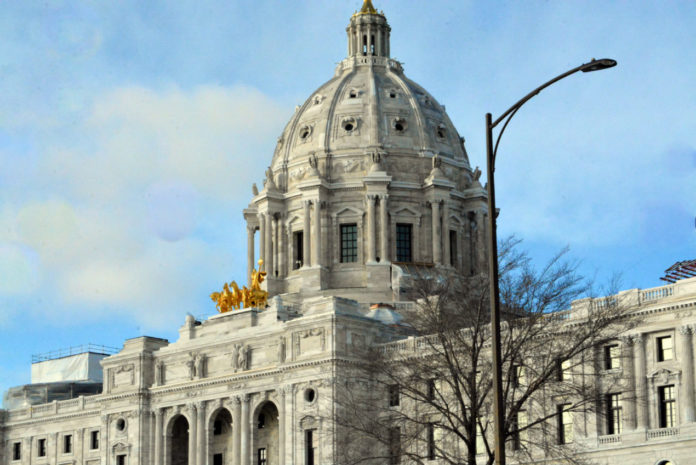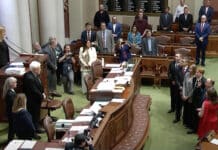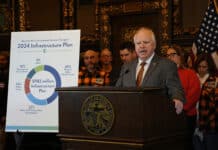Republicans want to give some of the surplus back to Minnesotans through tax relief
St. Paul, MN – The Minnesota Management and Budget (MMB) Commissioner announced today that the state is on track for a $1.65 billion budget surplus in the upcoming biennium.
This is up $250 million from the $1.4 projection made by MMB last November. The February economic forecast also estimates a balance of $743 million for FY 2016-17, up $87 million from previous estimates.
With a new budget required this session, the increased surplus leaves lawmakers at odds with how it should be used.
“We have worked hard to achieve these budget surpluses,” Gov. Dayton said during a press conference Tuesday. “They must be preserved.”
While Dayton did not explain how he intends to preserve the surplus, his $45.8 billion budget proposal increases spending and could potentially wipe out the surplus. Republicans are calling on lawmakers to oppose the budget proposal, instead fighting for tax cuts and “reinvesting” in Minnesotans.
“A surplus means we have collected more money than we needed from Minnesotans. We need to reinvest in Minnesotans,” Speaker of the House Kurt Daudt said.
Tax relief, infrastructure repairs, and health care reform are all items that Senate Majority Leader Paul Gazelka expects to tackle in this year’s budget.
“The surplus makes it easier to balance the budget, but we are going to watch spending,” Gazelka said.
While Republican leaders are optimistic about the economic forecast, Democrats are wary about what may happen on the federal level that would affect the state’s budget. A potential national repeal of the Affordable Care Act and changes in trade are cause for uncertainty for some.
“If I was king, this $250 million surplus, I would put it back into the budget reserves,” Senate Majority Leader Tom Bakk said. “There is some uncertainty that begs for some restraint on our part. I think potentially what they do with healthcare. The repeal of the Affordable Care Act. Potentially much of that burden of providing health care could be shifted back to the states at tremendous cost. I think that’s where the largest risk is.”
The legislature has to have a budget set by the end of the legislative session this May.
“We are happy with where we are at, and we will continue to work hard to make sure we are looking out for those taxpayer dollars,” Daudt said.

















